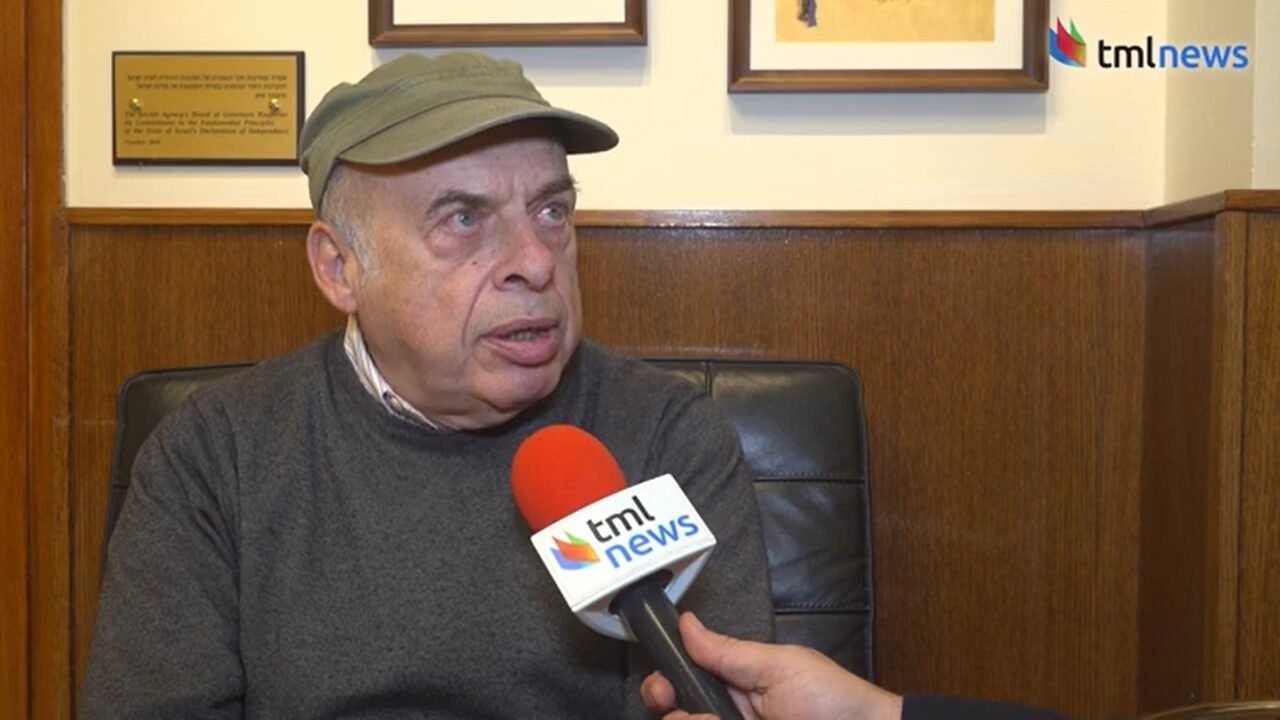From Campus Hostility to Ground Zero: Jewish Student Leaders Confront Rising Hate
Young Jewish leaders visited sites of the October 7 attacks and met leaders in Israeli society, arming themselves with strategies to challenge the rising wave of antisemitism and anti-Israel sentiment on college campuses
Since the outbreak of the Israel-Hamas war on October 7, 2023, antisemitism and anti-Israel sentiment on North American college campuses have escalated to disturbing extremes. Seeking tools to handle such an environment, 40 Jewish student leaders from 30 universities traveled to Israel in late December. The students, from schools including Columbia, Stanford, and the University of Toronto, visited sites of Hamas violence and met with Israeli leaders.
The trip was organized by Hasbara Fellowships and IsraelAmbassadors.com, two organizations devoted to promoting advocacy for Israel. It was developed in response to the widespread alienation experienced by Jewish students on their campuses, where hostility toward Israel often goes hand in hand with antisemitism.
Some of the attendees spoke to The Media Line while attending a conference with the World Zionist Organization. Amanda Yakobovits, a student from the University of Western Ontario, described the upheaval that the October 7 attacks caused for Jews on college campuses. “It was a time of grieving at first. It was a time when our entire world was completely turned upside down. And to this day, it’s never really gone right side up,” she told The Media Line.
Why are people not able to say that sexually violating Israeli women is not an OK thing to do?
For Romie Avivi Stuhl, a journalism student at the University of Oregon, the October 7 attacks were a turning point in her understanding of Israel’s precarious security situation. “It was an eye-opener,” Stuhl told The Media Line. “I have friends with family members held hostage in Gaza. This trip has deepened my resolve to stand up for Israel and create safe spaces for Jewish students like me.”
Give the gift of hope
We practice what we preach:
accurate, fearless journalism. But we can't do it alone.
- On the ground in Gaza, Syria, Israel, Egypt, Pakistan, and more
- Our program trained more than 100 journalists
- Calling out fake news and reporting real facts
- On the ground in Gaza, Syria, Israel, Egypt, Pakistan, and more
- Our program trained more than 100 journalists
- Calling out fake news and reporting real facts
Join us.
Support The Media Line. Save democracy.


She expressed frustration with those who refuse to recognize the basic immorality of the October 7 attacks. “Why does it seem that people can’t call for the release of the hostages, of an innocent, of a baby? Why is that something that’s so hard for people to say? Why are people not able to condemn the horrors of October 7? Why are people not able to say that sexually violating Israeli women is not an OK thing to do? It seems that there’s a line that’s often drawn when it comes to Israelis and Jewish people that they’re dehumanized and that people say, you know, we accept everyone except for the Jews,” she said.
Liat Weiss, a psychology and international business student at Northeastern University in Boston, said that anti-Israel sentiment on campus can result from students not seeing the whole picture. “A lot of people who are on this left-leaning spectrum and have more anti-Israel bias is because they’re hearing bits and pieces of a very large story,” she told The Media Line. “And the bits and pieces that they’re hearing really do shape a narrative where Israel does seem like it could be a powerful country that is maybe overexercising its power and causing a lot of damage to innocent people. And I completely understand how, when you’re not really seeing the full picture here.”
There are actually a lot more similarities between Israelis and Palestinians than we really think
Weiss said she found it meaningful to recognize the common ground between Israeli narratives and Palestinian narratives. “A lot of times, there are actually a lot more similarities between Israelis and Palestinians than we really think,” she said.
The students visited areas affected by the October 7 attacks and traveled to the northern border, where they learned about the security threats from Hezbollah. They spoke with survivors of the October 7 attacks, defense experts, and Israeli leaders, including Natan Sharansky, a prominent Israeli politician, human rights activist, and former Soviet dissident.
Speaking to the students, Sharansky described the unfortunate alliance between “classical antisemites” and anti-Israel progressives. “A mix of those who don’t want to see us as a Jewish state here and authoritarian regimes who are afraid of democracy—in the end, we have to deal with all this, understanding that we are fighting not only for our own future as a Jewish democratic state but also for the right of the free world to be free and connected to their identity at the same time,” he explained.
A mix of those who don’t want to see us as a Jewish state … we are fighting … for the right of the free world to be free
“We have to stick to the principles of human rights, and that’s why we have to remind people again and again that liberalism doesn’t mean progressivism,” he said.
Armed with a new sense of purpose and resilience, the attendees are heading back to their campuses with the goal of bringing a new discourse to their communities. “These students represent a growing need for proactive measures,” Alan Levine, executive director of Hasbara Fellowships, told The Media Line. “Their ability to effectively counter misinformation and advocate for Israel is critical, not just for their campuses but for the broader Jewish community.”

